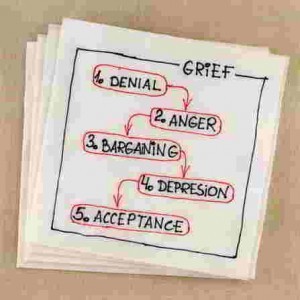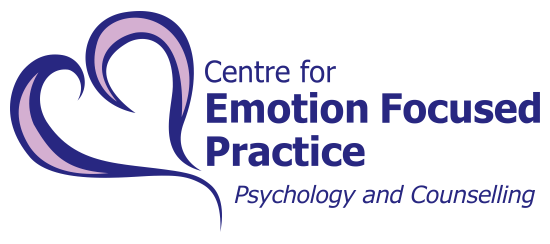Guiding Principles for Coping with Loss and Grief during the holidays
Coping with loss and grief is never an easy process, and unfortunately, the holidays offer an additional burden of grief to bear – especially if it’s the first holiday spent without the person you love.
As someone who’s had to cope with their fair share of significant loss and holiday grief in the past, and is currently coping with it again – I’d like to offer you my empathy, and some guiding principles, tips, and techniques I’ve learned over the years to help you cope with your loss, and survive the additional grief brought on by the holiday season.
Guiding principles for coping with loss and grief
- Community is key – Find a supportive community, grief partner, or counsellor. Even if you retreat into isolation, having someone who knows your mental state who can keep tabs on your well-being, and be a listening ear when you need one is crucial.
- Honour yourself
- Do what feels best to you during this time (discluding potentially maladaptive coping mechanisms).
- Honour your feelings, thoughts, and emotions, and do what you need to do to healthily feel and express those things.
- Remember that it is equally okay to choose to celebrate or not celebrate the holidays.
- Self-care is survival – Make time to care for your own needs, no matter how minimal it feels.
- Give yourself grace

Five stages of grief
When it comes to dealing with grief and loss during the holidays – this is something I won’t sugar coat, or try to offer cliches or X amount of steps to help ease the pain. That’s too simple in my eyes – it doesn’t even begin to address the complexities of the emotions we feel inside. Processing grief isn’t a one-size-fits-all formula, although working through the stages of grief with a counsellor can be a tremendous help when processing a loss. Coping with loss and grief during the holidays comes in many different forms, and there is, unfortunately, no band-aid solution to help mitigate the pain. In my own life experiences, I’ve had ample opportunity to apply psychological theory and therapeutic practices learned in academia to my circumstances, and have gathered a lot of insight about coping with loss – especially during the holidays.
First, I want to point out that losing a loved one can take many forms – your feelings are valid and the depth of your pain is real, even if your grief doesn’t stem from a tragic event or death. To our hearts, minds, bodies, and souls – a loss is a loss. Grieving the loss of any long-term relationship, romantic partner, best friend, or loss of family due to irreconcilable circumstances can often be as life-altering and grief inducing as the death of a loved one – especially if these are people you typically spend holidays with. Regardless of the nature of your loss, your feelings are valid. How we cope with these feelings, and the loss of our loved one(s) during the holidays, will shape how we ultimately recover from the loss in the long run.
For me, having some form of validation and guidance during grieving periods helps me continue through the healing process. For that reason, I’ve outlined some of the guiding principles I use for coping with loss during the holidays below.
Community is the key when coping with loss and grief
I have to be transparent, the grief felt from loss-to-loss, is never the same for me. It’s unpredictable. I’ve dealt with several life-altering losses, and every time I think I’m doing okay and might’ve ‘mastered’ grieving and loss-coping, I find myself wildly confused and swept off my feet in a wave of pain and loneliness that this most current loss has brought. If you’ve ever felt this, I want you to know you’re not alone. It’s no secret that humans were biologically designed to need people. We are a communal species, and mutual relationships based on caring and love are a basis for our survival. When we find people to share parts of our lives with, these people are meeting a very primal and biological needs in us – the need for community, connection, and in some relationships, physical touch.
This is why each loss is different, because losing special people in our lives opens the void of the need they were filling, and we feel that need and void tremendously.
Our biological need for community and the detrimental effects of isolation taught me that seeking out a community or a grief partner during the holidays is necessary for surviving it in one piece.
Having a close confidant throughout the holidays to check in with periodically can be very helpful in processing the emotions you feel. This person is generally someone that knows you well, cares for you deeply, and is okay with being a listening ear for you when big emotions come to the surface. In my experience, this person doesn’t have to be physically present to be helpful. For me, this person has been my best friend since I was 15, and she has always been (reliably) only a text or a call away. Having someone available that I can let in on scary feelings while they are present with me has been effective in reducing the anxiety I have toward these potential feelings during the holidays, and is helpful in working through them. Having this person in place also helps dampen the sting of loneliness when it strikes. Additionally, please don’t be ashamed to admit when you need someone. Needing other people (especially during hard times) is not a sign of weakness, nor does it make you ‘dependant’ or ‘needy’ – it’s a sign that you’re a living, breathing human being.
If you’re in need of additional support, I encourage you to seek out grief counselling, or grief support groups. Emotionally centred, group grief-therapy is proven to be very effective in helping individuals cope with the initial shock of loss, and cope with the void that is left. As I’ve said before, there is immense power in having a community!
Honour yourself
It’s crucial to honour your needs and feelings while coping with loss during the holidays. Doing the most loving thing for yourself is always the best way to proceed. There is no right or wrong way to grieve a loss – if you don’t feel like celebrating the holidays, you don’t have to. On the flip side, if you may feel like celebrating the holidays, but feel guilty for wanting to without your loved one or are concerned that enjoying your holiday will raise judgment or won’t ‘look like grieving.’ Let me tell you this – for I’ve gone through this: You are allowed to proceed through your healing however you need to, and your loved one would want you to be happy and enjoy the holidays – you never need to feel guilty for enjoying life without them.
Dealing with communal & personal losses during the holidays
 If you’re experiencing a communal loss, it’s often beneficial to be with your other loved ones and friends who are grieving the same loss during the holidays. Don’t worry about ‘keeping it together’, or knowing the right things to say to each other, simply being present with people you love, who can relate, will help ease the intensity of your loss. Sometimes a hug, a silent hand squeeze, or an acknowledging smile, even through tears, can help us cope with the void felt acutely throughout the holiday, and in our daily lives. Sometimes, it helps to honour the person you’ve lost during the holidays – acknowledging the felt void is crucial in learning how to one day fill it, or care for it when it aches.
If you’re experiencing a communal loss, it’s often beneficial to be with your other loved ones and friends who are grieving the same loss during the holidays. Don’t worry about ‘keeping it together’, or knowing the right things to say to each other, simply being present with people you love, who can relate, will help ease the intensity of your loss. Sometimes a hug, a silent hand squeeze, or an acknowledging smile, even through tears, can help us cope with the void felt acutely throughout the holiday, and in our daily lives. Sometimes, it helps to honour the person you’ve lost during the holidays – acknowledging the felt void is crucial in learning how to one day fill it, or care for it when it aches.
Please know that it is okay to:
- Talk about your loved one
- Light a candle for them, or honor them in another way
- Include them in prayers, or acknowledge their spirit, if spirituality is apart of your life
- Create new traditions in memory of them, or hang on to old ones
- Have pictures of them out
In the same vein, it is equally okay to not wish to do those things either. When it comes to grieving your loss and handling the holidays, you’re in control of how you want to deal with it, and depending on what stage of the grief you’re in, even denial might be the safest place to stay for the time being.
If you’re grieving a personal or individual loss, the holidays can often feel much more complex to navigate, or even survive.
If you’re anything like me (a highly empathetic person and recovered codependent) you might be far more worried about how your pain will affect the jovial mood of everyone else’s holiday, who may be mostly or wholly unaffected by your loss. And if you have dependents, this adds to the level of distress you might feel.
I’d like to stop you right here and invite you to take a deep breath. Feel your heartbeat, you’re alive, and you’re going to make it through this.
“Every tempest must return to the sea.”
During this time in your life, it’s crucial to focus on yourself. Self-care is vital now more than ever. Below are some tips I’ve learned that help me say ‘no’ to my codependency, and put my needs first during the holidays.
Self-care is survival
Putting our own needs above those of others can be a hard thing for many of us to do. However, this is not selfish. Doing so may be a key to healing in your journey. Your loved ones and children, want you to be well – don’t delay prioritizing your needs and feelings amongst those who may need you to be strong for them. It will serve everyone in the long run. When dealing with children who are experiencing the same loss (especially if it’s a parent/ partner loss), it may be helpful for them to have a trusted third party present to process the loss together with you over time (this is why having a community is vital). This is most significant in the initial stages of loss/grief, and potentially in gearing up to deal with the first holiday without the person. As a parent processing your own grief, you may not be emotionally and mentally available to answer your little one’s questions, and deal with their big emotions that will inevitably arise. That’s okay. This is why they say “it takes a village to raise a child.” Lean into the support you have.
To process familial loss, I highly recommend family grief counselling, or family-centred grief support groups – especially if the loss occurred close to or during the holidays.
Grief is increasingly difficult to manage when juxtaposed with such a celebratory time as the holidays. Having someone to process the confusion and feelings that come with this can be vital in resiliently adjusting to the loss in the long run, and being able to find joy in future holidays.
NOTE: If you struggle with chronic depression or have in the past, or are feeling like your grief is consuming you and your ability to function on a daily basis, you may be experiencing grief-related depression or an adjustment disorder, for which emotionally focused counselling helps immensely. Don’t be afraid to seek professional help if you think you need it – you will be met with compassion, understanding and guidance. It’s okay to not be okay.
Tips on prioritizing your needs while coping with loss and grief during holidays
- Learn to say lovingly say “no” and not feel the need to explain yourself each time – don’t overextend yourself.
- Set aside time to care for yourself – honour emotions that demand to be felt.
- Learn to ignore peoples’ comments about ‘what grieving looks like’ – they’ve never had your shoes on.
- Slow down the pace of your life – focus on the essentials.
Before continuing, I want to make it clear that my perspective on dealing with loss is coloured through the lens of episodic major depression and generalized anxiety – which is more than manageable with the help of my mental health professionals in my daily life – but is inevitably triggered by loss and stress. I also have my own single-life with no dependents. Please bear in mind that my coping techniques and self-care habits are not universal, but with whom my words resonate, some may be helpful.
My self-care strategies when coping with loss and grief during the holidays
- I feel what I need to feel, and set aside time to process it. – My emotions often confuse me, which is why I see a counsellor regularly. It helps to be validated by a licensed professional, gain words for confusing feelings, and find strategies for dealing with moments when emotions/grief overwhelm me.
- Acknowledge that this loss is affecting my body too and that my body needs me to care for it now more than ever, so it can take care of me.
- I try to prioritize nourishment – setting a goal to eat one solid meal a day, or force-feeding myself veggies a couple of times a week.
- Set aside time for hygienic self-care – take a bath if need be, moisturize, skincare, groom nails, etc
- Take walks/ go to the gym/ meditate a couple of times a week
- Accept that on some days, it’s okay not to get out of bed.
- Communicate to the people closest to me how I am being affected by my loss during the holidays, and don’t be afraid to be a ‘needy’ friend (I’m a chronic self-isolator – which is dangerous for me).
- Focus on the essentials of life, slow down, and simplify. – What doesn’t pay my bills, help keep me stable, or bring me pleasure or joy has to be put on pause in my life for the time being.
- Prioritize anything that makes me happy or brings me purpose, and try to engage in it regularly.
- Manage my substance use: My holidays are marked by a lot of social drinking. I always need to be wary of my drinking behaviour, as alcohol is a depressant and ultimately makes my mental state worse, coupled with my predisposition to substance abuse, it’s the worst combination for my health.
Learning how to care for ourselves emotionally, mentally, and physically while grieving can feel like an enormous task. But as with all things in life, there is grace in the learning curve, we just have to know where to find it.
Give Yourself Grace
Life rarely gives us grace when we need it the most, which is why it’s vitally important to learn how to give ourselves grace when circumstances alter our life and we’re forced to learn how to adjust to our new reality. A technique I learned when learning how to give myself grace, is to pretend that I’m my best friend or someone I care for deeply. Knowing all that I know about how I feel, and my situation, how would I treat a love of mine who is going through the same? I use that mentality and extend that love to myself, which helps greatly in learning strategic self-care during fragile periods.
A simple, grace-extending self-care tool I frequently use is positive affirmations. Speaking kindly to ourselves and affirming our own progress, no matter how small, is crucial in coping with loss and holiday grief. If speaking kindly to plants is proven to help them grow, imagine what speaking kindly to ourselves will do. Additionally, recognize that you’re doing the best you can, and be okay with feeling whatever you need to, and doing whatever you need to do to get through the holidays. Even if emotions/thoughts/feelings come up at unforeseen times, give yourself grace.
You’re stronger than you think, and you will get through this. I’m rooting for you.
If you are looking for help, whether for yourself or a loved one, our psychologists can assist in exploring underlying issues through therapy. Please visit our practitioners’ page to find out more, or call (03) 9820-5577 for an appointment or to make enquiries.
Psychologists at the Centre specialised in Grief & Loss

Lara Ryan
Child, Adolescent & Adult Psychologist
I am a registered psychologist that works with individuals of all ages to really get to the heart of what it is they want and need to live a full life.

Virginia Henningsen
Registered Psychologist
I assist individuals in developing skills to manage their lives, gain enjoyment from their life, and lift and bolster their general feeling of well-being.

Lyn O’Grady
Child, Adolescent & Adult Psychologist
As a Registered Community Psychologist, I have worked with parents in community settings for approximately 10 years as well as with children and young people in school settings for 10 years.

Susanne Goldie
Psychologist
I work with a wide range of individuals in a non-judgemental, holistic way to understand each person’s unique circumstances and support them in achieving their goals. I work with people of all ages.

Hannah Lethbridge
Registered Psychologist
I provide a warm environment for clients to express their thoughts, feelings, and struggles in a safe way. My clients value the collaborative approach I take when we work towards their therapeutic goals.

Geoff Newbegin
Counselling Psychologist & Psychotherapist
I am an experienced counsellor and psychologist with over 15 years of experience, which includes a wide range of clinical experience.

Lucas Silva-Myles
Registered Psychologist
My therapeutic approach is firstly to hear your story and understand what you are going through without judgement.

Hannah Kroussoratsky
Counsellor
Gentle, caring and encouraging, my desire is to truly hear your story and create a safe space for you to grow and flourish. I have a genuine commitment to your whole self – body, mind, heart and spirit – and my integrated therapeutic approach allows for your holistic care and transformation.
Related Articles
- When to Visit a Psychologist
- How Can We Build Resilience?
- Problem Solving: A Psychological Perspective
- Top 5 Things to Do to Support a Family Member with Depression
- Coping with Loss and Grief
- You Can’t Make Sense of Happiness if You Don’t Know Sadness




